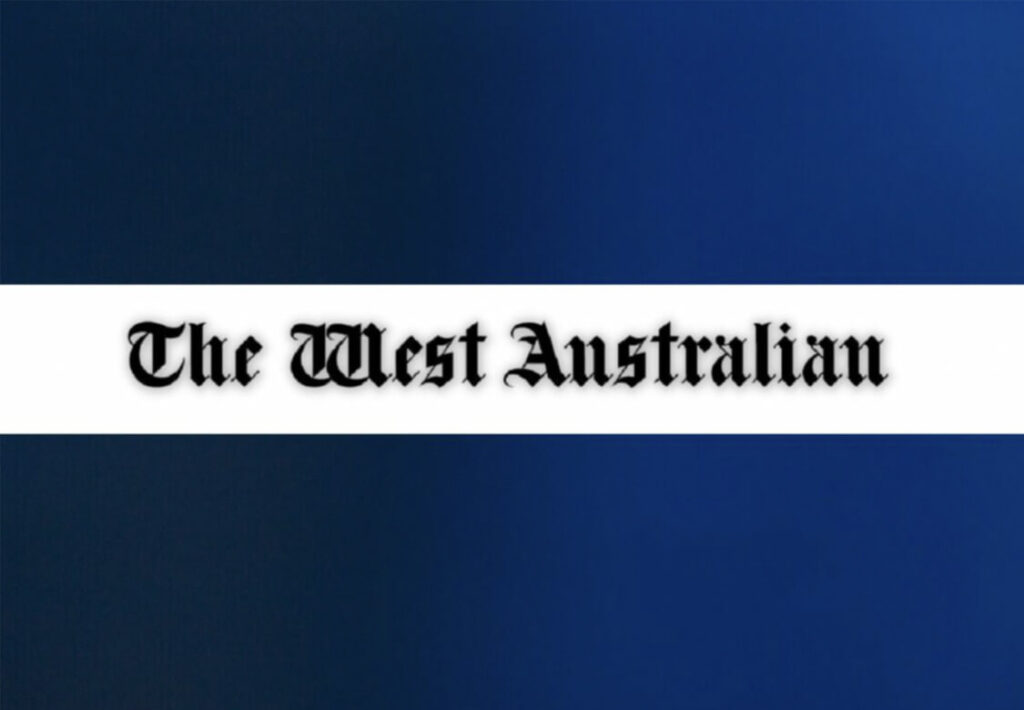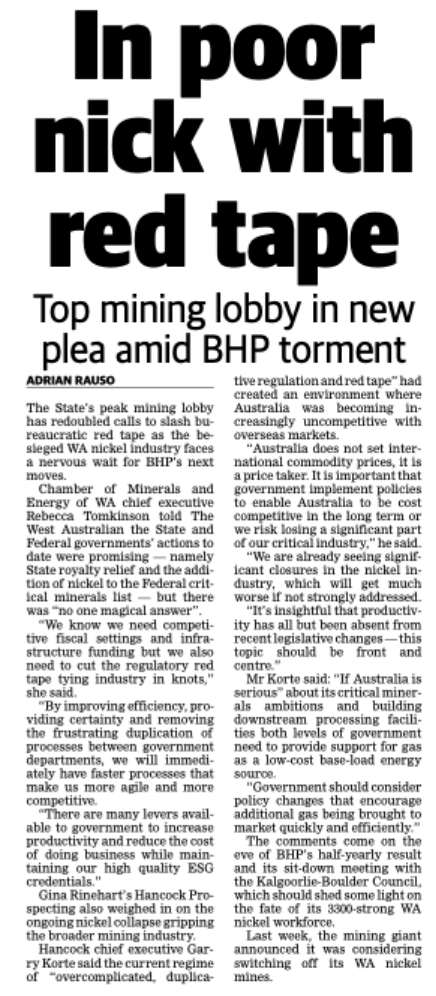

Article by Adrianne Rauso courtesy of the West Australian.
The State’s peak mining lobby has redoubled calls to slash bureaucratic red tape as the besieged WA nickel industry faces a nervous wait for BHP’s next moves on Tuesday.
Chamber of Minerals and Energy of WA chief executive Rebecca Tomkinson told The West Australian the State and Federal Government’s actions to date were promising — namely state royalty relief and the addition of nickel to the critical minerals list— but there was “no one magical answer”.
“We know we need competitive fiscal settings and infrastructure funding, but we also need to cut the regulatory red tape tying industry in knots,” she said.
“By improving efficiency, providing certainty, and removing the frustrating duplication of processes between government departments, we will immediately have faster processes that make us more agile and more competitive.
“There are many levers available to government to increase productivity and reduce the cost of doing business while maintaining our high quality ESG credentials.”
Gina Rinehart’s Hancock Prospecting also weighed in on the ongoing nickel collapse gripping the broader mining industry.
Hancock chief executive Garry Korte said the current regime of “overcomplicated, duplicative regulation and red tape” has created an environment where Australia is becoming increasingly uncompetitive with overseas markets.
“Australia does not set international commodity prices, it is a price taker. It is important that government implement policies to enable Australia to be cost competitive in the long term or we risk losing a significant part of our critical industry,” he said.
“We are already seeing significant closures in the nickel industry, which will get much worse if not strongly addressed.
“It’s insightful that productivity has all but been absent from recent legislative changes – this topic should be front and centre of any debate about changes needed to underpin long term competitiveness.”
Mr Korte said “if Australia is serious” about its critical minerals ambitions and building downstream processing facilities both levels of government need to provide support for gas as a low-cost base load energy source.
“Government should consider policy changes that encourage additional gas being brought to market quickly and efficiently.”
The comments come on the eve of BHP’s half-yearly result and its sitdown with the Kalgoorlie-Boulder Council, which should shed some light on the fate of its 3300-strong WA nickel workforce.
Last week the mining giant announced it would slash the value of its WA nickel operations by $5.4 billion and was considering switching off the mines.
BHP Nickel West asset president Jessica Farrell over the weekend said the nickel industry is facing high costs and low prices in a global market that is undergoing structural change.
“Mines are shutting, jobs have already been lost and the flow on impacts will continue to be felt in regional communities across Western Australia,” she said.
“The critical minerals sector requires businesses, state and federal governments to work together on a full range of initiatives, including cost structures and policy settings.”